I get cold feet before writing negative reviews. Just because I didn’t like a book doesn’t mean it’s a bad book. There are so many variable influences on reading – mood, expectations, the hangover from the last book you’ve just read, and all the little personal niggles, foibles and phobias that no writer could ever guess. Reading is extremely subjective and falls victim to all sorts of irrationalities. I’ll try to explain my own as we go along.
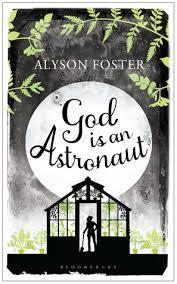
Well this was the one I hated most from the entire year and I even got to the end of it. Jess Frobisher is a professor of botany at a Michigan university, unhappily married to Liam, who runs Spaceco, the first travel firm to send their clients up in rockets. When the novel opens, Spaceco have had a tragic disaster and they are besieged by the media. In an attempt to cheer herself up, Jess starts building a greenhouse. The story is told through the emails she writes to her former colleague and ex-lover, Arthur. Why she bothered with emails, I have no idea as it’s just a novel chopped up in bits, with some excuse to say ‘Arthur’ at the end of each paragraph, so we don’t forget. Jess is miserable and takes it out on both Arthur and Liam, for whom I developed misplaced sympathy, as the novel ends with Jess stitching up his firm completely. I will never understand the people at Goodreads. They moan about sympathetic characters, but Jess, who was quite the least likeable character I encountered this year, is apparently an enjoyable source of ‘snark’. So, to be clear, if characters take their negativity out on themselves, this is self-pity and unpleasant, whereas if they take it out on others, this is snark and enjoyable? I didn’t like When God Was a Rabbit, either, so I’ll steer clear of such titles in future.
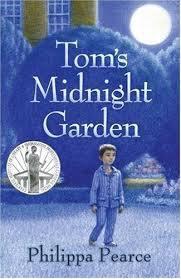
Oh I am so sorry, really truly sorry to all of you who commented in droves about how much you loved this book. It is indeed charming and nostalgic, and the premise of a magic garden is lovely. I just… put it down and didn’t manage to pick it up again. I think perhaps I only like children’s books when I’m reading them to a child. I wish it were different!
The Late Scholar by Jill Paton Walsh
Ah, continuation novels, how tricky they are. Jill Paton Walsh has Peter Wimsey pitch perfect, and Harriet Vane isn’t bad either. But the plot bothered me. The murders are all supposedly drawn from books Harriet has written (which are in turn drawn from the cases her husband has solved) and I can see that might be considered a lovely trip down memory lane for Dorothy L. Sayers fans. But it was a rotten excuse for a murderer who piled up bodies hither and thither. The thing is, Sayers was a clever plotter, and I didn’t believe she would ever have used such a clunky device.
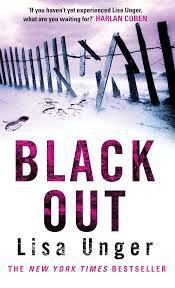
Two thrillers with the same issue for me – excessive and unreasonable peril for their female protagonists. Both books began slowly with a lot of back story, in which it seemed no author would be satisfied unless the woman in question had been abused as a child, bullied, incarcerated, stalked and raped and living in constant theat and still managing to keep a smile on her face ‘cos she’s a ‘fighter’. Are women so unsympathetic to other women that this is what a heroine must endure? I’ve recently read one of Ann Cleeves’ novels, one of her Vera Stanhope ones, in which a woman with a past was ostracized in the community by another, one of those uptight organising types, and it was very well done because only one scene was needed for me to feel outraged. There was space for my imagination to do all the necessary work and it was far more effective than ladling on the strife.
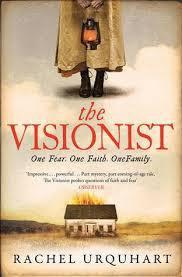
This one wasn’t the book’s fault. Although the female protagonist was sexually abused by a drunkard father to whom she set light so that she and her mother and brother could run away (see above for excessive peril). But then she ends up in a Shaker community (sorry should have said – starts in the 1840s in America), supposedly for safety. This was as far as I got. I could see it was a very well-written book and well-researched and cleverly told. Somehow the historical period didn’t click with me and the style of writing (nothing wrong with it) isn’t one I’m drawn to. Just the wrong book for me.
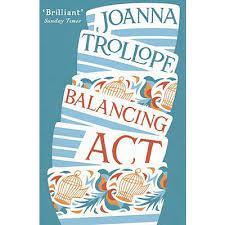
I’m usually a Joanna Trollope fan. I think she has the capacity to be profoundly realistic, and present the reader with exactly the sort of cares and concerns that families do have nowadays. I really like books that seem real. This one didn’t come together for me. It’s based on a family who run a pottery firm – the matriarch, Suzy, set it up and now her three adult daughters are working for her. The problem is, some of those daughters think it’s time to move the firm on in more modern ways but their controlling mother wants to keep it all the same, and remain true to her own vision. It’s also a book about women who work and men who look after the kids, with Trollope ultimately saying that mothers count for more than fathers on the domestic scene. What bothered me was the motivations for the characters’ actions, which seemed weak (something Trollope normally does very well). And there are way too many scenes that take place in people’s heads as they approach a confrontation of some sort, in order to end on a cliffhanger. Later, we hear some of what happened. So for me, I felt that Trollope just didn’t get into her characters the way she normally does, and ducking out of those vital interactions was the result. The book lacked the vibrancy and energy she is capable of producing.
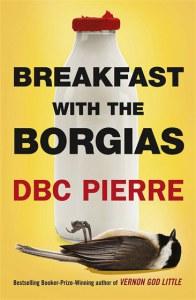
One of the new series of Hammer Horror books. I was intrigued to read DBC Pierre, well, for the first fifteen minutes or so. He had his main character’s plane land in fog at Stansted airport, but somehow the driver of the taxi he was in couldn’t seem to locate him a hotel until he reached the coast beyond Ipswich. ‘This must be the last room in the country,’ he says, which is quite a notion, since by my reckoning they’ve been driving for about an hour and a half through a densely populated area. What does DBC Pierre think East Anglia is like? Then his character descends to the hotel bar where he meets a more unruly version of the Addams family, and my credulity was stretched to the point where it snapped entirely and I put the book down. Sometimes it is best not to read books about areas where you have lived all your life written by people who may only have whistled through once on a book tour.
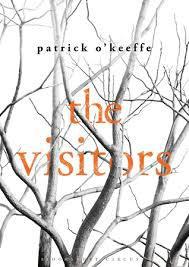
This was perhaps a victim of literary burnout. It came at the end of a longish stretch of literary novels and the sameness of the voice was wearing me down. That distanced but melancholic tone, those shapely, direct sentences with their carefully chosen words. A general impression of each scene having been laminated. The novel began in America, and that part was okay. But when we went back to the old country, to Ireland, and the protagonist’s dysfunctional family I just lost the will to live. I felt I’d read it too many times. Which might have been true in the moment, but was not necessarily fair to this book at all.
And that’s it! A bunch of books that you may absolutely ADORE under different circumstances. I give you full permission to do so.
